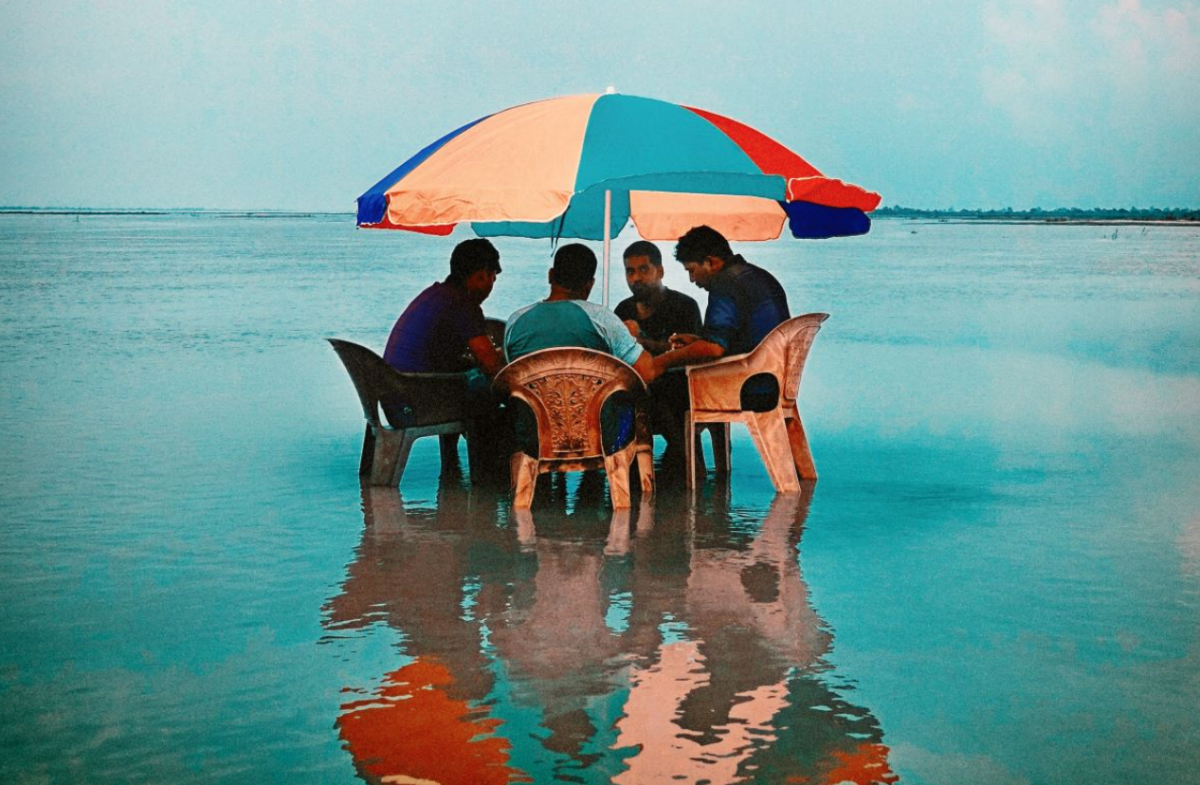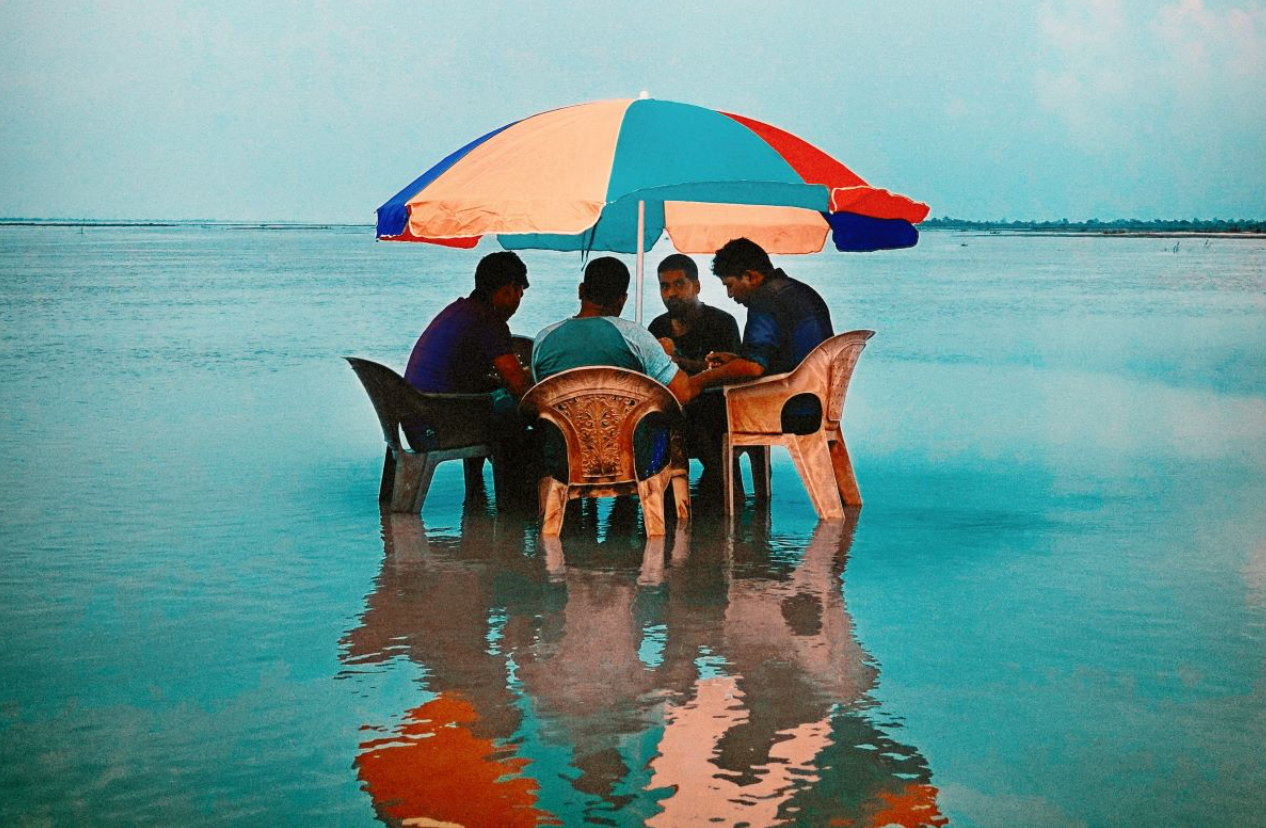
Beating the heat in Assam, India. Photo by Ethnic Media Services (Rohan Reddy via Unsplash)
Extremely hot weather is nothing new for Indian residents, with temperatures inland routinely soaring to 122 degrees Fahrenheit just before the monsoon season.
Despite the heatwaves, India has a relatively low per capita death toll from heatstroke in a country of 1.4 billion people, with official records averaging 1,500 deaths per year. Critics say the official records are a gross underestimate because heatstroke deaths are often attributed to other factors.
About 80% of the population lives in rural areas without air conditioning, refrigerators or even electric fans, and frequent power outages mean that even those who have cooling equipment often can’t use it.
Balancing the elements
Dr. Yashashree Mahnoor, founder of Shubham Ayurvedic Clinic in Fremont, California, believes Ayurvedic practices can help Indian families cope with the heat. Known as the “science of life,” the concept is thought to have originated in the 2nd century.and Ayurveda was founded by the Hindu god Brahma in the 1st century BCE. Ayurveda is based on balancing the five elements of the universe: Vayu (air), Jala (water), Aakash (space or ether), Prithvi (earth) and Teja (fire).
Mahnoor grew up in Pune, a landlocked city about 100 miles southeast of Mumbai. On hot summer days, her family would cool off with sherbet made with buttermilk, lemon juice, water, salt and sugar. Green mangoes were boiled, cooled and squeezed with water, jaggery, a little salt and cardamom to make a refreshing, tart drink called aam panna.
“In Ayurveda, all foods have cooling and heating properties,” says Mannur. This refers to the properties of the food, not its temperature, she explains. For example, chili peppers, which have heating properties, don’t become cooling foods just because you put them in the fridge. Conversely, warm watermelon will still cool you down.
Buttermilk Rice
“Foods that are cold in temperature do not give a lasting cooling effect because they heat up again when they enter the body at body temperature. But foods that are cooling in nature do not heat up at body temperature because the cooling effect remains as they have already been processed at body temperature,” Mahnoor said. Most of the Indian spices have heating properties and should not be used in summers. Coriander and mint have cooling properties and can be used in summers, she said.
In India, rose petals, sandalwood and vetiver are widely used to keep the body cool during summers. A classic example of a summer dish is rice mixed with buttermilk and a little rose petal syrup or jam, says Mahnoor. Hot chai with milk, rose petals and sugar, all of which have a cooling effect, still provides a cooling effect.
Foods that cool the body
Saumya Ayurveda Clinic in New Mexico has compiled a comprehensive list of foods that have cooling properties, including:
Vegetables with high water content (cucumbers, asparagus, squash, zucchini, etc.)
Juicy fruits (mango, papaya, grapes, etc.)
Berries (strawberries, raspberries, cherries, etc.)
Melon (watermelon, muskmelon, cantaloupe)
Whole grains (rice, quinoa, oats, etc.)
Cooling herbs (dill, coriander, cilantro, rose)
Coconut water
Herbal tea (hibiscus and rose)
Infused water (lime, cucumber)
Rosewater Lemonade
Melon juice
Chilled Coconut Limeade
Surprisingly, most citrus fruits and root vegetables have a warming, rather than cooling, effect on the body. Mannour recommends replacing the acidity and astringency with sugar and salt to replenish the electrolytes lost through sweating.
Sheetali Breathing
Yoga exercises to cool the body include: Sheetali Breathing This meditation involves curling your tongue into the shape of a boat. Then, breathe in through the folded tongue and out through your nose. “The breath you inhale will be cool. Sheetal means cool,” explains Mannur. Summer clothing should be pastel coloured cotton. Silk is not advisable as it has a tendency to heat up, the doctor said, and he also warned against artificial fibres.
Ayurveda recommends massaging your body with oil every morning when you wake up. Sandalwood- or vetiver-scented oils can help keep you cool throughout the day, says Mannur. After your shower, spritz your body with rosewater or rub in herbs like sandalwood, she says. Both have sweat-reducing properties and smell great, too.
Rosewater, vetiver, and sandalwood can be sprinkled throughout the home, especially on window blinds, to help keep the interior cool.
Creates humidity
“In India, even in the heatwaves there is humidity. It’s very dry here. So, ideally you want to create some humidity in your home or in the area you live in.”
“Just fill a pot with water, add some rose or jasmine flowers and place it where there is a gentle breeze. The water is so cool, smells good and refreshes your mind, and it helps to ease the heat,” says Mannur. Sprinkle rose water on your bed linen to help you sleep comfortably all night, even in hot and humid weather.
Villagers in India smear cow dung on the walls of their homes to keep them cool, and Mahnoor says clay can have the same effect.
“Ayurvedic principles are deeply ingrained in our culture for the past 5,000 years. Extreme heat is not uncommon in India. But we have managed,” she said.
This story was produced as part of Heat Ready CA’s public awareness and outreach campaign, as part of a collaboration with the Office of Community Partnerships and Strategic Communications. For more information, visit Heat Ready CA. (Ethnic Media Services)
Recommended article: Excessive heat is dangerous: How to stay safe



